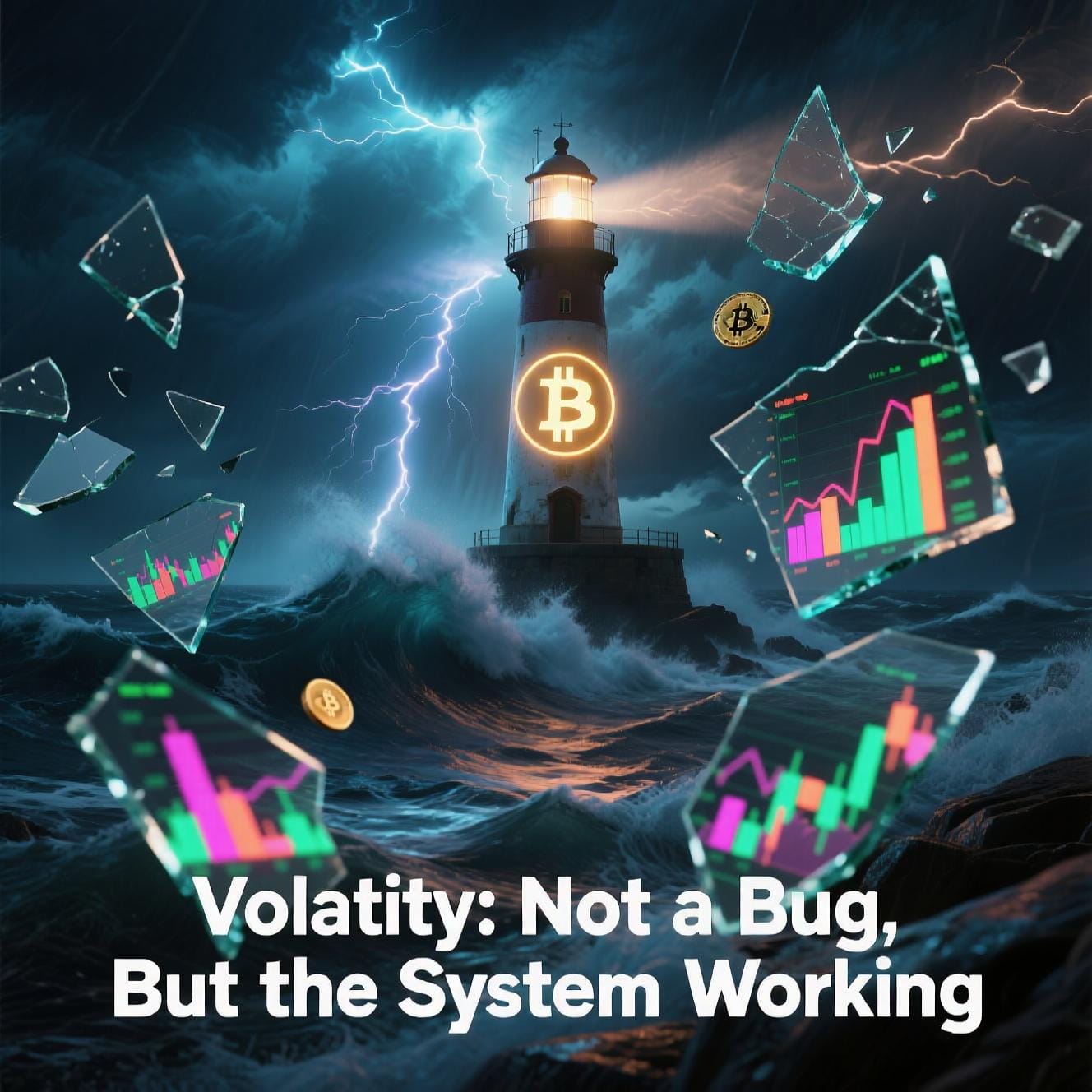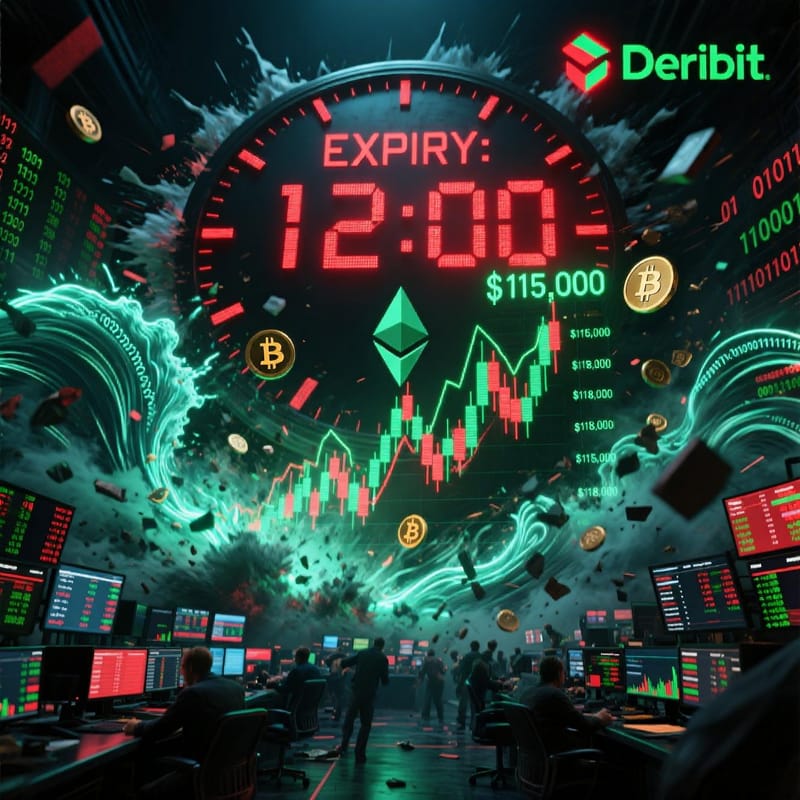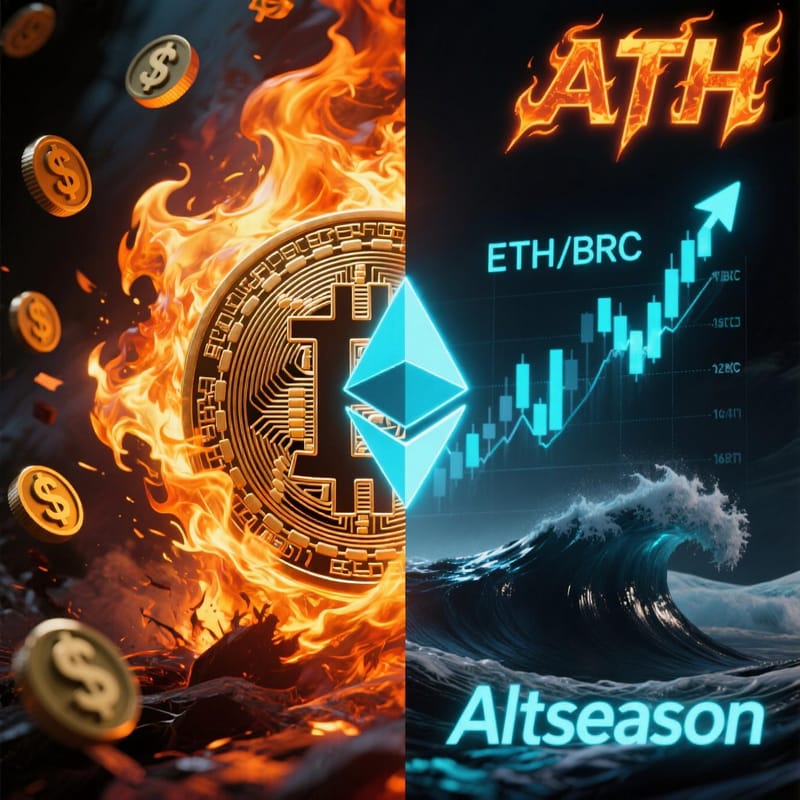Bitcoin Volatility: The Engine of Innovation, Not a Flaw to Fear
Bitcoin’s volatility isn’t a weakness — it’s the core mechanism driving adoption, liquidity, and long-term value. As institutions like Tesla enter and exit, and upgrades reshape the network, these swings aren’t chaos. They’re the market finding its price

The Myth of Stability: Why Bitcoin’s Swings Are Built In
Ask a newcomer what scares them most about crypto, and the answer is almost always the same:
“It’s too volatile.”
But in the world of decentralized money, volatility isn’t a bug — it’s the feature.
Bitcoin’s wild price swings aren’t signs of failure. They’re evidence of a living, breathing market in the process of discovering its true value — without the filters of traditional finance.
As on-chain analyst Nic Carter puts it:
“Volatility is a feature, not a bug, of open monetary networks. It’s the process of price discovery in real-time, 24/7.”
And he’s not alone.
Why Volatility Is Necessary — According to the Titans of Crypto
The biggest names in the space don’t fear volatility. They celebrate it — because they understand what it means.
- Arthur Hayes, former BitMEX CEO, sees it as the gateway to outsized returns, especially in early-stage assets.
- Michael Saylor doesn’t flinch at drawdowns — he calls them “discounts” on a hard asset with infinite time horizon.
- Vitalik Buterin acknowledges that speculation is essential for decentralized networks to reach valuation consensus.
These aren’t reckless gamblers. They’re architects of the new financial system — and they know that no revolutionary asset ever gained value quietly.
Gold had its rushes.
Stock markets had crashes.
Bitcoin? It has 24/7 price discovery — no holidays, no circuit breakers, no gatekeepers.
Volatility as a Catalyst: From 2017 to Tesla and Beyond
History doesn’t repeat — but it rhymes.
- In 2017, Bitcoin’s run to $20K was dismissed as a bubble.
- In 2020–2021, Tesla’s $1.5B purchase sent shockwaves — followed by its equally sudden exit, amplifying swings.
- Each halving cycle has triggered explosive moves, followed by brutal corrections.
But each time, something important happened:
👉 New users entered
👉 Institutions took notice
👉 Infrastructure improved
👉 The market matured
These aren’t coincidences. They’re direct results of volatility — the force that separates the curious from the committed.
And every cycle, the floor price rises.
The Institutional Paradox: Fear the Swing, Chase the Gain
Here’s the irony: the same institutions that warn about crypto volatility are the ones causing it.
When Tesla buys or sells BTC, markets react.
When BlackRock files for an ETF, price surges.
When governments regulate, panic (or euphoria) follows.
Yet these are the very forces that add legitimacy and liquidity.
Volatility isn’t just traders flipping contracts. It’s:
- Technological upgrades (Taproot, Lightning)
- Macroeconomic shifts (inflation, rate cuts)
- Regulatory news (SEC rulings, CBDCs)
- On-chain activity (whale moves, exchange flows)
All of it gets priced in — instantly.
The Road to Maturity: Will Bitcoin Ever Calm Down?
Yes — but not yet.
As adoption grows, volatility will gradually compress, just as it did with early internet stocks or emerging market currencies.
Developers, educators, and exchanges are already working to:
- Improve risk tools
- Expand derivatives markets
- Boost financial literacy
But for now, volatility remains the price of entry — for both risk and reward.
And as Nic Carter reminds us:
“You don’t get 100x returns without 80% drawdowns.”
Final Word: Embrace the Swing
Bitcoin isn’t trying to be the stock market.
It’s building a new form of money — one that’s open, global, and uncorrelated.
And like any newborn system, it’s going to wobble.
But every spike, every crash, every headline about “Bitcoin collapsing” — that’s not the end.
It’s the market working as intended.
So the next time BTC drops 20% in a day, don’t panic.
Ask:
Who’s exiting? Who’s entering? And what price is the world discovering today?
Because in crypto, volatility isn’t the risk — it’s the reward mechanism.





